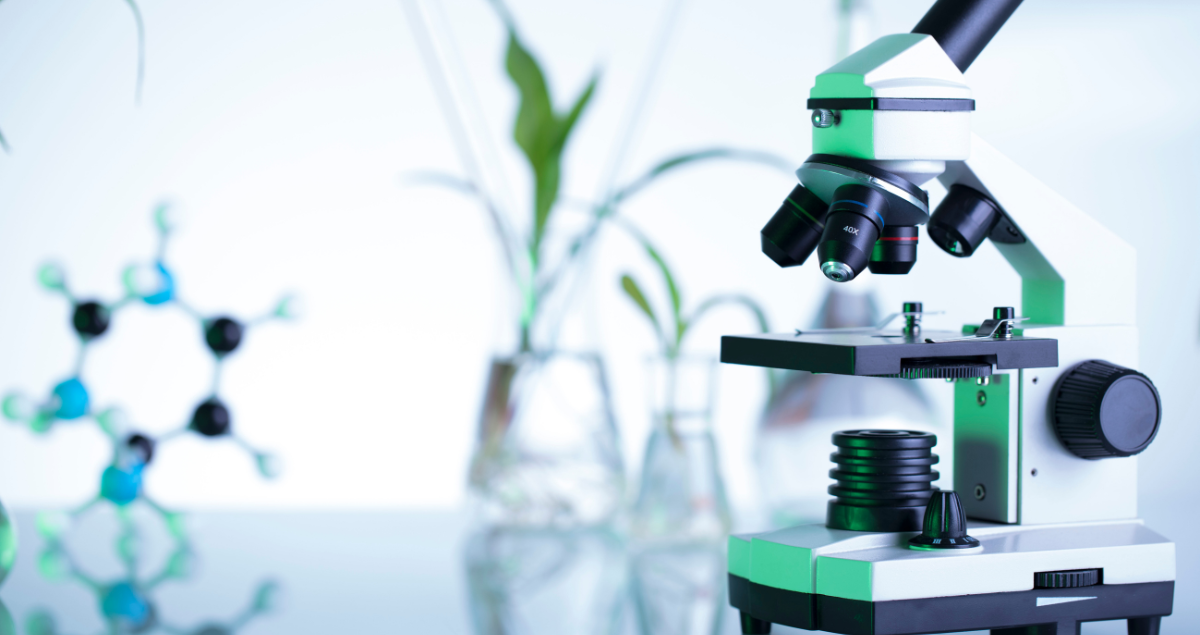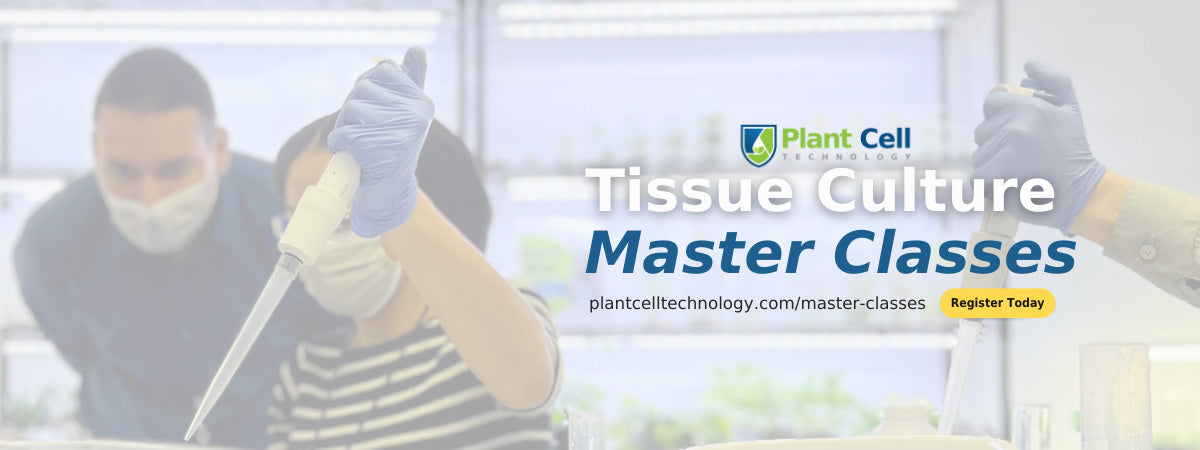
Challenges of Doing Plant Tissue Culture At Home
As a content and community manager, I leverage my expertise in plant biotechnology, passion for tissue culture, and writing skills to create compelling articles, simplifying intricate scientific concepts, and address your inquiries. As a dedicated science communicator, I strive to spark curiosity and foster a love for science in my audience.


Introduction
“ Maintain strict aseptic conditions”
It’s the primary advice we receive from the tissue culture experts. Because, if your goal is to obtain healthy and disease-free plants, you need to protect your plants from pathogens and pests.
For serious growers, the technique makes it easier for them to plant at a commercial scale, increase their productivity, clone plants by maintaining their genetics, and achieve so much more.
The technique allows you to be independent of the other growers to obtain a large number of mother plants. How? You only need a few tissues of the plant to fully grow them. Today, the technique is accessible easily and the knowledge is widely available to learn and try your hands on the method quite easily.
It wasn’t a piece of cake for the growers of the 19th or 20th century.
Now, implementing the knowledge in the right way, you can build a lab as small as one room in your home or as big as the giant suppliers of the plant in commercial sectors. The technique allows you to generate income from multiple streams, by selling mature plants, and tissue culture plants, investing in the production of secondary metabolites using those plants, or supplying mother plants to other labs.
There’re other heaps of benefits of the magical tissue culture approach.
In this article, we talk about if it’s possible to create a home tissue culture lab, the challenges of doing so, and how can you overcome the pain of creating your home lab.

Creating a Plant Tissue Culture Lab at Home
Doing tissue culture at home does one thing for sure “saving you tons of money”.
How?
Well, a home doesn’t demand a high-tech setup, performed in a small space, replicating as many plants as you want from one healthy mother plant, and no need to purchase plants in bulk ever again.
- Choosing a proper room
- Choose a room in which you will perform the technique (best if it’s a closed room with no windows). Clean the room as much as you can and disinfect it. Whatever things or setups you bring into the area, ensure they a disinfected. Such as tables, racks, or organizers. Divide your room into two parts, the culture area, and the plant incubation area. Install proper lighting (LED lighting is preferred nowadays for tissue culture plants). Install a temperature and humidity control system.

- Equip the lab with equipment
Here’s a small list of what you need:
- A small pressure cooker Glass canning jars A one-tube fluorescent desk lamp A kitchen mixer A measuring cup Petri dishes, forceps, and spatulas Freezer pH meter Weighing balance Laminar hood (or use a plastic container with a small air filter in the room)

- Purchase quality tissue culture chemicals
- Get Agar/Gellan gum, MS media, PPM, sugar, and sterile distilled water Plant hormones (auxin and cytokinin) Surfactants (such as tween 20) and bleach
- Find a working protocol for the plant you want to introduce in tissue culture

What Challenges You Might Face in a Home-Based Tissue culture Lab?
Though, a tissue culture lab at home is an easy and cost-effective approach. But, you must be aware of the challenges you might face.
-
Contamination
One of the primary requirements of tissue culture is “maintaining sterile conditions”. However, contamination has been a major issue in tissue culture labs. Even giant and established tissue culture labs often face contamination problems.
Simple-home-based labs are more prone to contamination when you don’t work under a laminar hood. Further, in a small space, it’s difficult to separate the culture area, storage area, and plant incubation area properly, which increases the contamination risk.

-
Equipment Problem
For small-scale growers, creating a cost-effective home-based lab, and outfitting the space with equipment is one of the major issues.
Three expensive pieces of equipment that become heavy on culturists' pockets include a fridge, autoclave, and laminar flow hood. However, this equipment is necessary. Fridge is used to store your chemicals, the autoclave is used to sterile tissue culture tools, distilled water, and media, and the laminar flow hood is essential to maintain an aseptic environment while transferring your cultures to culture media or performing any culture steps.

-
Scaling-up Problems
You can work in a small home lab until you are using tissue culture as a hobby or working as a small-scale plant propagation. However, if you need to explant your plant business, you need to culture more plants, maintain more plants, and acclimatize more plants, which will require more facility and area and can’t be performed in a home lab.

-
Beginner Challenges
For beginners, the major issue is accessibility to knowledge, finding credible resources to learn about tissue culture, protocol availability, and getting started on using the equipment and chemicals.
“What do we need to create a home lab?
How to create a lab, prepare media, and culture plants?
Where to find tissue culture protocol for the plant we desire?”
And, many more questions like the above ones we receive from our global tissue culturists.

Tissue Culture Master Class To Learn Ins and Outs of Plant Tissue Culture
Tissue culture is now a popular technique among growers and plant businesses to grow plants at a commercial scale. It’s only because of the advantages it offers over the conventional approaches to growing plants, such as producing hybrid plants, disease-free plants, and the requirement of small space.
But, if you’re a beginner in the area and have no knowledge of tissue culture, incorporating this technique into your business model can be challenging. That’s why we bring a comprehensive indoor plant tissue culture master class curated to serve your tissue culture needs.

Our Houseplant tissue culture master class is a comprehensive course curated to prepare you with the knowledge and energy you need to kickstart your plant business. Though it will help you in an indefinite way, here are some advantages of it to name:
Training for the most advanced technology available today for plant propagation—tissue culture.
- Hands-on experience in tissue culture. Networking with like-minded people. Directly learn from an instructor having 15+ years of experience in the area. Get the answers to your questions instantly from the instructor. Learn how to build your small-scale or in-house lab or how to take your already established plant business to next level. Work on the plants and learn about the challenges and solutions on the spot with your instructor. Getting a certificate to demonstrate our expertise and knowledge about the tissue culture technique.
And, much more!
Interested in learning more about the course? Click here and get the answer to all your questions related to our master class!
Blog Categories
View by Level
Popular Blogs

6 Plant Tissue Culture Books to Keep Learning
Introduction Most of us are fans of books when it comes to learning a topic in detail and in a...
Read More
New Technical Agar Vs Supreme Agar
Introduction What’s the secret element that supports and holds plants in vitro? Not sure? It’s the solidifying agent. Solidifying agents...
Read MoreSubscribe to Our Newsletter








Join the conversation
Your email address will not be published. Required fields are marked